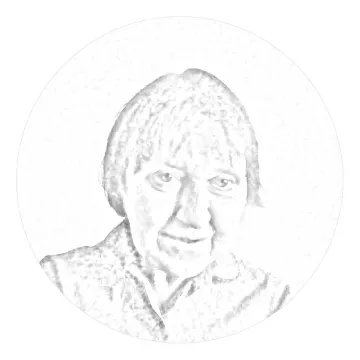
Matthew1 was 8 years old, bright red hair, freckles and a huge grin. It was my first paediatric job, duties to clerk in the patient and take the bloods. He had complained of back pain when he was seen by his family doctor, who told Mum that children did not get backache like adults, tummy pain is the usual complaint - no need for time off school, Calpol and sympathy if required. When he kept complaining, Matthew was seen by an orthopaedic surgeon who agreed with the family doctor and suggested exercise or private physiotherapy. He came to our hospital, referred as query psychosomatic pain.
When I met Matthew, he smiled and told me he was fine but his back hurt. Mum was sure it was physical, and was anxious that the previous doctors had not examined Matthew. On (very junior paediatric) examination he was tender over his lumbar spine, lower limb reflexes were difficult to elicit. This investigation confirmed advanced rhabdomyosarcoma, too extensive to have any options for treatment other than local radiotherapy and palliative care.
I still took his bloods, wrote up his drugs and tried to chat cheerfully every day. But I felt useless, disillusioned that even our specialists could do no more, I was so angry that he had not been believed or his symptoms taken seriously and so his diagnosis delayed till too late. The team did not discuss his pre-admission history or act to try to relieve his mother’s guilt and self-loathing at failing to advocate effectively for her child.
And then one day we chatted as usual, but Matthew took my hand and said, “Doctor it’s not your fault.”
He deteriorated as predicted and died within the year. And I took his lesson to heart that children and parents need us as paediatricians to be the doctors who takes children seriously. We need to believe what children experience as reality. We need to give them a voice that really matters when they and their parents or carers need this to feel they are genuine partners in learning what matters for their healthcare needs. I found that families involved in support groups were generous in sharing experiences that taught me what textbooks and lectures could not. Even when our medical expertise lets us down, we can still help a sick child by our humanity, seeing palliative care not as failure of treatment but the child’s right when cure is not a realistic goal. And most of all that children are the finest people to work with and for, and we paediatricians are the luckiest doctors to be privileged to do so.
Una MacFadyen is a retired general paediatrician from the days when special interests welcomed more than one specialism, so she kept her neonatal and respiratory specialist clinical work throughout her career. She was involved in RCPCH from the days of the BPA and in the Parents and Paediatricians Together project with Contact a Family.
- 1Names and other information that could identify someone have been changed.






